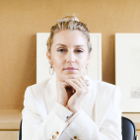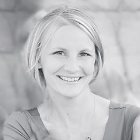15 Entrepreneurs Share the First Hires They Made for Their Business and Why

Welcome to Recruiter Q&A, where we pose employment-related questions to the experts and share their answers!
Today’s Question: Who were the first hires you made at your company, and why?
These answers are provided by Young Entrepreneur Council (YEC), an invite-only organization composed of the world’s most successful young entrepreneurs. YEC members represent nearly every industry, generate billions of dollars in revenue each year, and have created tens of thousands of jobs.

Two of the first people I hired were a developer and a designer, because they had key skills I needed to build my business and get it going. These are two figures who have part of the process from the beginning, contributing ideas and turning my thoughts into reality.
— Kevin Leyes, Leyes Media & Team Leyes, by Leyes Enterprises

Early hires are often shallow and wide, and my first hires were no different. I needed people who could deal well with change and ambiguity and needed minimal hand-holding. My first hires may not have had deep experience, but they could block and tackle a huge array of tasks and learn while doing so.
— Ashley Merrill, Lunya

At the inception of my company, I hired five marketing people into my team. Four of them were very well experienced, and one of them had great potential. They were all very crucial to the company’s growth. We all worked countless hours, day in and day out, including weekends. We failed, met targets, and pushed each other through the mental barriers. Hiring them was indeed one of my best decisions.
— Vikas Agrawal, Infobrandz

I hired support for customer service. Always hire someone who is as close to the customer as possible. The more value you can immediately provide to your customers, the more customers you will attract. Instead of focusing on marketing campaigns or account managers, hire someone to cater to your customers’ needs immediately.
— Matthew Podolsky, Florida Law Advisers, P.A.

My first hire was for the role of operations manager. This was key because I was able to define this role and scale the responsibilities as my company grew. It freed up some of my time and allowed me to pursue bigger goals and higher-profile clients, as well as build relationships without being bogged down in administrative work.
— Leila Lewis, Be Inspired PR

One of my first full-time hires started as a remote virtual assistant. Right away, he distinguished himself with his hustle. He showed the right mix of determination and creativity and excelled at a wide variety of tasks. I needed an all-rounder I could trust to take ownership of crucial aspects of operations so that I could focus on growth. Now, he’s my business partner.
— Matt Diggity, Diggity Marketing

The first person I hired was a content marketer who helped me create a content marketing strategy for my first brand. I didn’t have enough time and resources to do it all on my own, so they were a huge help in getting the content side of things off the ground.
— Stephanie Wells, Formidable Forms

One of my first hires was a developer. I’d previously been doing most of the development even as a founder, but as we grew, it became clear that I couldn’t do it all anymore. At first, I delegated work, but as my developer became more familiar with the product, they started enhancing it in ways I hadn’t thought of before. They brought a new perspective to the product that helped it grow faster and better.
— Thomas Griffin, OptinMonster

I hired a business development professional. Some businesses can only thrive depending on the people you are able to network and connect with. For one of my key businesses, which was highly community-focused, it was critical to bring on someone who was able to build great rapport and establish a wide range of business connections.
— Nicole Munoz, Nicole Munoz Consulting, Inc.

Opposites can work well together. That’s why my first hires were engineers. They could do the hardcore work on the engineering, while I come from more of a creative and marketing perspective. When you put the two of us together, you get creatively engineered products that customers love! Don’t be afraid to hire different personalities either. If you’re by the book and organized, find somebody creative.
— Andy Karuza, LitPic

The first person we hired was our project manager. We had a few close friends working with us on the software, but no official hires. Our project lead was able to assess the situation and help us plan when we were hiring employees, developing timelines, and of course, working on our software.
— John Brackett, Smash Balloon LLC

Our first hire was a full-time account manager. Nine years later, she is now the COO. This was a key decision because we knew that if my cofounder and I were managing all of the clients, there would be no way we could grow. We needed someone solely focused on client work so we could focus on bringing in new business and building out the operations of the company.
— Kelsey Raymond, Influence & Co.

My first few hires were direct revenue generators. They had to do everything just like I did. They did project management, coding, design, etc. Your first hire is usually someone who is less specialized, as you will need quite a few different skill sets to get off the ground.
— James Guldan, Vision Tech Team

The first person we hired in our company was our sales manager. This was a key decision because it made us talk to customers, figure out what they were looking for, face and refute objections, and improve our service. It also helped us identify our target audience.
— Alfredo Atanacio, Uassist.ME

Choosing my business partner was a very key decision for me. I went with someone who had a skill set diametrically opposed to mine, and that turned out to be a great strategy. Anything he’s not good at I usually am, and vice versa.
— Andrew Schrage, Money Crashers Personal Finance

